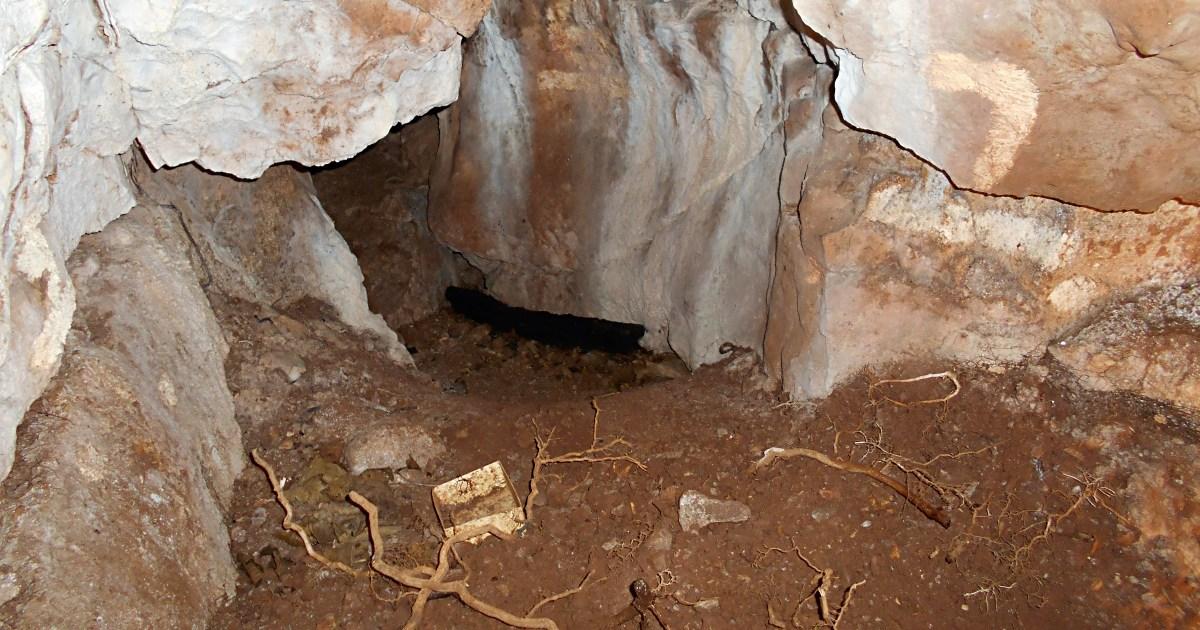2026 BCRA Online Seminars via Zoom
Our monthly seminars are intended to promote the scientific importance of caves and karst,
and they describe ways in which BCRA supports cave research. Some of these talks are jointly
organised by BCRA and the Ghar Parau
Foundation. GPF is a charity that provides grants to British caving expeditions throughout
the world.
We will announce the next few talks in the series as soon as possible. Generally, they usually
happen on the second Monday of the month, with a summer break in July and August.
If, as part of the 2026 season of seminars, you would like to offer a talk on a science
topic that you think would be of interest to a broad caver audience then please contact
Emily Tilby with a title and a few words about your suggested
content.
Click/Tap a link or scroll on down.
Past
Seminars in 2026
Click the pull-down icon to show/hide the list.
#1 — Mon 12 Jan 2026 ▼
Once upon a slime: snottites and biofilms in neutral mine drainage environments in Derbyshire
With: Jo White
Time: Mon 12-Jan 2026, 19:30 to 21:00 GMT
Location: Online

Snottites
Photo: John Gunn
Snottites resemble stalactites composed of jelly-like microbial biofilms. They are traditionally defined as living in highly acidic
environments (pH 0–1). However, Derbyshire mine drainage adits (soughs) are pH neutral. To discuss snottites from these
environments required a redefinition of snottites to include a wider range of pH environments. I therefore developed 3 models of snottite
formation to work towards a broader definition of snottites.
Snottites and other biofilms from pH neutral environments are also largely
unstudied. My PhD research focused on examining the microbial populations of pH neutral mine drainage environments, and their survival
mechanisms. Using a combination of geochemical and microbiological data I constructed metabolic cycles which suggest the processes that
microbial communities are using to survive in these nutrient-poor environments.
#2 — Mon 09 Feb 2026 ▲
UNESCO Programs for the Protection of Fragile Karst Resources: Thirty Years in the Fabulous Karst Landscapes of Southwest China
With: Chris Groves, University Distinguished Professor of Hydrogeology, Western Kentucky University
Time: Mon 09-Feb 2026, 19:30 to 21:00 GMT
Location: Online

Peak forest landscape in the Li River section of UNESCO's South China Karst World Heritage Site
Photo: Chris Groves
The 500,000 km2 area of southwest China's carbonate rock outcrops, home to some 80,000,000 mostly rural people, is certainly
among the world's great karst landscape/aquifer systems. The purpose of this presentation is to present a very personal narrative of 30
years of collaborative hydrogeology research throughout this region, with Institute of Karst Geology, and since 2008 the International
Research Center on Karst Under the auspices of UNESCO (IRCK), in Guilin. This work has also been tied to other UNESCO programs including the
International Geoscience Program (ICGP, after the program's original name the International Geological Correlation Program), the World
Heritage Convention, and the Man and the Biosphere Program.
An added benefit, in the author's view, is that in an uncertain world the value
of "scientific diplomacy", even at small scales, cannot be overestimated. UNESCO helps to create a more peaceful world by helping
people to
"understand one another and the world around them".
Our Seminar Programme
#3 — Mon 09 Mar 2026 ▼
Prehistoric cave burials from Heaning Wood, Cumbria and their European context
With: Rick Peterson, Reader in Archaeology, University of Lancashire
Time: Mon 09-Mar 2026, 19:30 to 21:00 GMT
Location: Online
To Watch: see Joining via Zoom.

Interior view of the main chamber of Heaning Wood Bone Cave
Photo: Rick Peterson
Excavation of Heaning Wood Bone Cave, Great Urswick, Cumbria has produced an assemblage of human remains and prehistoric artefacts showing
that the cave was used for burial at three periods in the prehistoric past: the Early Mesolithic; the Early Neolithic and the Early Bronze
Age. Heaning Wood is just one example of many caves in North-West Europe which have evidence for burial and ritual activity at these dates.
This talk will examine what we know about these practices and what that might tell us about prehistoric beliefs about caves and the
underground world.
#4 — Mon 13 Apr 2026 ▲ ▼
Title not yet available
With: Speaker to be announced
Time: Mon 13-Apr 2026, 19:30 to 21:00 BST
Location: Online
To Watch: see Joining via Zoom.

Abstract not yet available
#5 — Mon 11 May 2026 ▲
Shaping Knowledge Underground: Collaboration in Cave and Karst Research
With: Simone Sambento, PhD Researcher, University of Edinburgh
Time: Mon 11-May 2026, 19:30 to 21:00 BST
Location: Online
To Watch: see Joining via Zoom.

Cave of Goikoetxe
Photo: ADES Espeleologia Elkartea
Cave and karst research depends on collaboration. Scientists, amateur speleologists, heritage professionals, and voluntary contributors
routinely work together to explore, document, and interpret subterranean environments. However, the transdisciplinary collaborative efforts
that sustain this work often remain invisible.
This talk draws on ethnographic research conducted for a PhD on collaboration in cave and
karst research in the Basque Country. It examines two types of collaboration: informal collaborations grounded in continuity, trust, and
shared practice; and formal, project-based collaborations shaped by funding, regulation, and institutional accountability. Based on the
study of several collaborative projects and interviews with amateur speleologists, scientists from a range of disciplines, landowners, and
representatives of government administrations, the talk examines how these forms of collaboration interact in practice and how they shape
knowledge production, participation, responsibility, and visibility.
The aim of this talk is to make the often unseen structures of
collaboration in cave and karst research visible. By linking everyday practices of underground research with their wider institutional and
regulatory contexts, the talk invites participants to reflect on how collaboration is shaped and sustained, where it becomes fragile, and
what conditions help it endure.
Joining via Zoom
You are advised to download and install the Zoom program in advance, from
Zoom Client for Meetings . If you do
not do this in advance you will be prompted to do it when you join a meeting, and you could have
to spend a few minutes installing it and working out how to use it. It is also possible to attend
a Zoom meeting via a web browser, but this is not recommended unless you cannot get Zoom to
install properly.
. If you do
not do this in advance you will be prompted to do it when you join a meeting, and you could have
to spend a few minutes installing it and working out how to use it. It is also possible to attend
a Zoom meeting via a web browser, but this is not recommended unless you cannot get Zoom to
install properly.
Join the next BCRA Zoom Meeting
You can test your connection prior to
the meeting
prior to
the meeting
- If you try to join the meeting before the host enables it, you could be left "in
limbo". Therefore, if your computer has not connected by, say, five minutes before the scheduled
start time, please log out and log back in again.
- If you cannot log in at all, please check our
Facebook page where
we will post any last-minute messages concerning, for example, any technical problems that we are
having.
- We might be using a Zoom passcode for this meeting. If so, it will be displayed
in a pop-up alert when you click on the link. You will need to note it down and enter it manually
when you are taken to the Zoom login page. Some devices might not be able to receive pop-up
alerts. Click here to
test whether you can receive these alerts. If you cannot then you will need to contact us, in
advance of the meeting.
- Please note that this event will not be recorded by BCRA. You can only watch it live,
via Zoom. The reasons for not recording our seminars are because a) obtaining the necessary
copyright clearances can be difficult, and time-consuming; and b) some content may be subject to
embargoes or other academic constraints. If you are interested in obtaining the content of a
particular talk you should contact the speaker privately.
Seminars Archive
View talks given in 2021, 2022 (none), 2023, 2024, 2025, 2026.
Notes for Staff
Notes for IT
- Slide timings are set in the JS variable $global_slide_times in
slides.js.
- The index number of the image to use for the Facebook scrape is set in the JS variable
$talk_for_OGI in seminar_data.js
- After Facebook has been allowed to scrape an image URL, if that image needs to be
changed, then it must be given a new URL in seminar_data.js. Thus if, initially,
$data["use_image"][7] = "/img_lib/talks23-7.jpg" then that must be updated by, say, adding
a version number (e.g. 23A-7) or Facebook will not attempt to re-fetch the file. If the
above syntax is preserved, the new "use_image" filename will still map to the correct actual file
name, as set in $data["image"] .
- Zoom link info written here
- When running locally a debug dump follows. (The HTTP_HOST is currently mail.bcra.org.uk).





